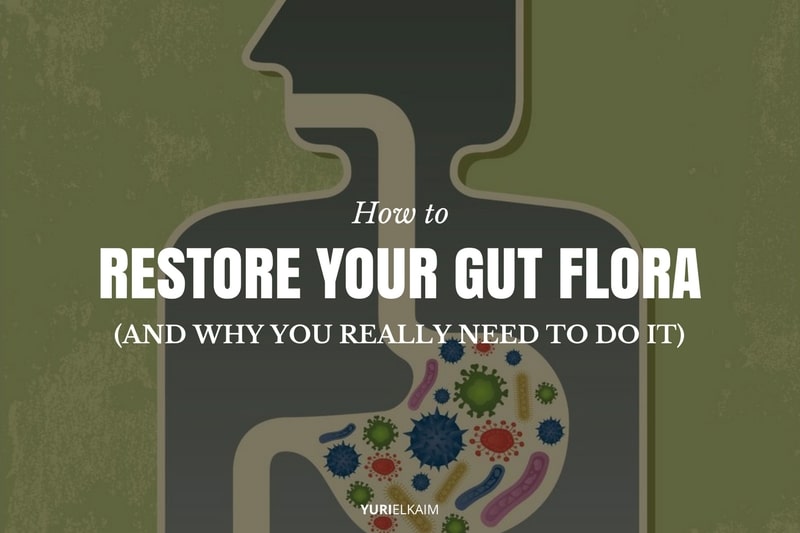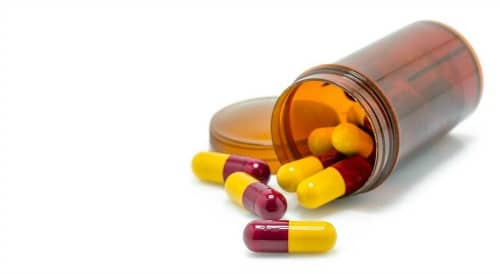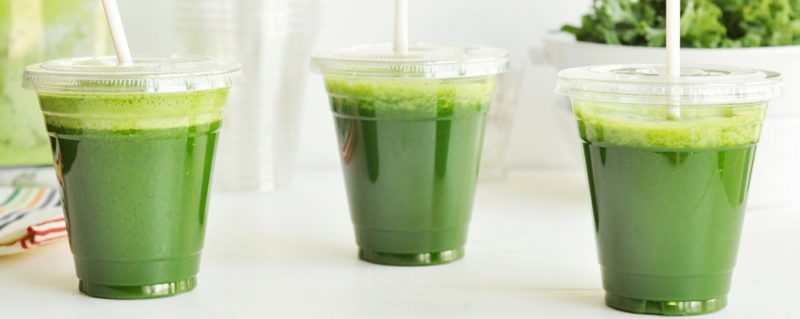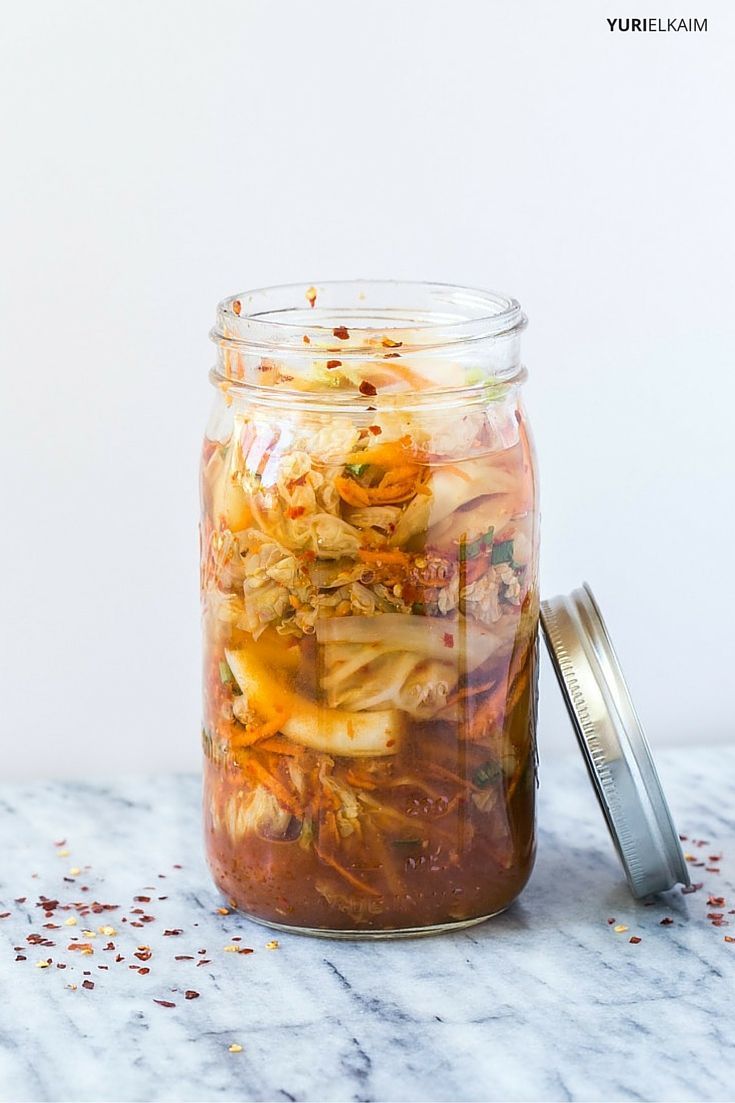In this article
Is your gut making you feel sad, tired, or fat – without you even knowing it?
It very well might be. There are hundreds of millions of tiny microorganisms living inside it, and they exert tremendous control over your health.
The good news is, you can control them – and how you feel – by changing what you eat, how you sleep, and how much you move.
Restoring Gut Flora
If it seems like you’ve tried everything to manage your chronic conditions – insomnia, mood swings, skin issues, joint problems, and more – and you just can’t seem to get ahead of them, there’s a good chance you could be looking in the wrong place.
Instead of treating the symptoms, start at the root: your gut flora.
Which begs the obvious questions: what exactly is your gut flora, and how does it affect your health?
Inside your body, 100 trillion microorganisms line your intestinal tract, regulating everything from digestion to mental health.
This microscopic community is known as your gut microbiome, and it’s made up of intestinal bacteria – both good and bad.
The gut microbiome, also known as gut flora, is comprised up of both beneficial bacteria that help your body function, as well as some not-so-great disease-causing pathogenic bacteria.
Some of the most well-known strains of good bacteria include Lactobacilli, Caulobacter, and Bifidobacterium. These healthy strains can help minimize the amount of pathogenic bacteria in our bodies, like Salmonella and E. coli.
In this post, you’re going to learn:
- The 5 Factors Negatively Impacting Your Gut
- Why You Need to Fix Your Gut ASAP (6 Reasons)
- How to Bulletproof Your Gut Health (Do These 5 Things)
Let’s get started by covering the basics of what influences our gut bacteria.
5 Things Hurting Your Gut
From what you put into your body to what’s going on outside of you, numerous factors affect your gut.
1. Antibiotic Use
Doctors often prescribe antibiotics to kill off pathogenic bacteria inside our bodies.
Unfortunately, antibiotics can’t tell the difference between the good and bad bacteria and often end up wiping out lots of beneficial gut bacteria in the process.
If you do need to take an antibiotic, it can be helpful to take a probiotic along with it to build up your good bacteria and keep the antibiotic from depleting your microbiome.
2. Lifestyle and Environmental Factors
Another biggie: smoking. If you smoke you have fewer kinds of microbes, leading to a reduction in “genetic richness,” which can put a damper on gut health (1).
3. Exposure to Pesticides
Your gut bacteria are actually able to metabolize environmental chemicals, like pesticides.
Which sounds like a good thing, but there’s studies show that exposure to pesticides can alter bacterial colonization in the intestines, which has a negative effect on the composition of the gut microbiome (2).
Related: 6 Foods You Should Always Buy Organic
4. Stress
Too much stress can slow the movement of food through the your digestive tract, increase the permeability of the intestines (known as leaky gut). That allows undigested food particles to escape the digestive tract, which cuts back on the amount of good bacteria in your gut (3).
5. Diet
Not surprisingly, diet can also have a big impact on your gut.
What you eat can enhance the good bacteria in your GI tract, allowing more types to grow, or feed the existing bacteria to promote growth.
Keep reading to see exactly what you should be eating to foster good gut health, plus why healthy bacteria matters in the first place.
Why You Need to Fix Your Gut ASAP (6 Big Reasons)
From keeping your waistline trim to warding off sickness, restoring intestinal flora is one of the best things you can do for your health.
Here are a few of the most important ways that a healthy gut microbiome is connected to your overall wellbeing:
1. Getting Enough Sleep Affects Your Gut
If you find yourself waking up in the morning still exhausted, your gut bacteria might not be the first thing you think of.
But research has shown that the health of your gut has a major impact on getting a good night’s sleep – and vice versa.
Undergoing any type of stress can disrupt the bacteria in your GI tract. When you don’t get enough shut eye at night, it can trigger a stress response in the your body, which ends up altering your gut microbiome (4).
The result is insomnia, chronic fatigue, and a constant groggy feeling, even if you think you’re getting enough sleep.
The process is cyclical. You need to make sure you’re clocking in at least 7-8 hours of sleep every night to keep your gut healthy – and you need to feed your good bacteria so you can get a better night’s sleep.
Recommended Reading:
- 10 Ways to Sleep Better Tonight (No Sleeping Pills Required)
- 10 Powerful Adaptogenic Herbs That Will Lower Your Stress
- Feeling Stressed and Overwhelmed? Here Is How to Beat It
2. The Gut-Brain Axis Is Linked to Your Mental Health
The health of your gut is related to the health of just about every other part of you, including your brain.
Your good bacteria also play a crucial role in the enteric nervous system. This is a division of the nervous system made up of neurons that control the function of the gastrointestinal system, including the esophagus, stomach, intestines, and rectum.
The enteric nervous system is also known as “the gut’s brain,” and it’s a big reason why the health of your gut bacteria has such a widespread effect on your overall health.
One of the major impacts of your gut-brain axis is on serotonin, a neurotransmitter that plays a role in mood regulation. A deficiency can lead to depression and anxiety.
Besides the central nervous system, serotonin is also found in the enteric nervous system and on the walls of the intestines. In fact, the vast majority of all serotonin synthesis occurs right in the GI tract (5).
Gut bacteria are responsible for producing 95 percent of the body’s serotonin, so keeping a healthy, functioning gut microbiome is crucial to proven and treat disorders like depression and anxiety (6).
Researchers also believe that diseases like Parkinson’s disease could be linked to the gut-brain axis. Some evidence is showing that Parkinson’s could start in the gut and spread to the central nervous system (7).
Others theorize that the gut microbiome could even determine the severity of Parkinson’s disease, which is characterized by tremors and uncontrollable movements. Researchers noted that intestinal bacteria could aggravate the motor deficits of the disease (8).
3. Your Intestinal Bacteria Could Affect Your Weight
Did you know that your gut bacteria can play a role in appetite and how much food you eat?
It makes sense. Good gut bacteria are found on the lining of your intestinal tract, so it seems only fitting that they should have a major influence on your weight.
So how does it work?
Gut flora has a direct effect on both fat metabolism and storage.
If you’re obese, the gut bacteria are conditioned to extract energy from food more efficiently and increase absorption of glucose in the intestines and liver (9).
Increased absorption and efficiency might sound like a good thing, but it’s actually not.
See, even if we eat something that has 100 calories and 10 grams of sugar, not all of that will actually be absorbed by the body.
But when you’re obese, the gut bacteria have been trained to take more of the calories from food and store more of the glucose in the intestines and liver instead of using it for energy.
This process alters the production of fat in the liver, leading to an increase in fat storage.
Several studies have shown that weight is directly associated to intestinal bacteria.
Some case studies have even shown that losing weight can cause a positive shift in gut bacteria, proving that restoring your gut flora is a very worthwhile investment for your health (10).
Related: How an Unhealthy Gut Is Sabotaging Your Weight Loss
4. Better Gut Health = Stronger Immune System
When we start talking about the immune system, most people don’t necessarily think of their intestinal tract.
But did you know that your intestines contain more immune cells than anywhere else in the your body? (11)
These cells engage in a type of “crosstalk” with the gut bacteria, allowing the gut bacteria to communicate and stimulate the immune system as needed to target and fight off foreign invaders.
Overuse of antibiotics coupled with a poor diet and lifestyle habits can spell trouble for your gut bacteria – and your immune system – as these factors can all can deplete your good gut bacteria and lead to an overgrowth of the bad bacteria.
When your gut flora gets thrown out of whack, the communication between the gut and the immune cells isn’t able to work as effectively. This means that your good gut bacteria can’t tell the immune system that there are invaders to fight, leading to a weakened immune response.
5. Restore Gut Flora for Glowing Skin
You’ve probably heard the saying that real beauty starts from within. Believe it or not, it’s true – good gut bacteria can help clear acne and treat psoriasis.
Inflammation plays a big role in most skin conditions, including both acne and psoriasis.
When you get stressed out, it can disrupt your intestinal bacteria, in turn promoting inflammation. Unfortunately, when this inflammation manifests on your skin, it can often be pretty noticeable (12).
The best way to get clear skin is to start from within. Start working towards fostering a healthier microbiome and the results will show, right on your skin.
Recommended Reading:
- How to Get Clear Skin: A Simple 1-Day Drink Menu
- How to Achieve Flawless Skin? Start with These 3 Super Nutrients
6. Your Gut Health Can Affect Cancer Risk
As if improved sleep, fat metabolism, and brain health weren’t enough, emerging research is suggesting that the bacteria in your intestines could even be linked to cancer.
Antibiotics, smoking, and diet are just a few factors that can disrupt your intestinal microbiome – and are also common culprits in spurring the development of cancer.
Not only that, but several of the substances produced by intestinal bacteria can have a direct effect on the development of tumors and have the power to either promote or suppress their growth (13).
Some studies have even found that the composition of the gut microbiome can be used as a screening tool to predict the likelihood of developing cancer (14).
Though the connection isn’t totally concrete yet, it’s safe to say that restoring your gut flora can definitely be beneficial when it comes to cancer.
How to Bulletproof Your Gut Health (Do These 5 Things)
So by now you probably get the idea: your gut flora is pretty important for almost all aspects of health.
But how do you go about keeping it healthy or restoring gut flora after antibiotics?
1. Probiotics
The easiest way is by making a few modifications to your diet. Put the focus on including foods that contain probiotics, which are beneficial strains of bacteria that promote the health of your digestive system. Basically, probiotics are an easy way to increase the amount of good bacteria in your GI tract.
A Simple Homemade Kimchi Recipe
Some of the best foods for restoring gut flora are fermented foods like kimchi, kefir, kombucha, and sauerkraut; these foods all contain healthy probiotics that can support strong gut health.
Fermented foods are foods that have been exposed to bacteria and yeast, breaking down the glucose and often resulting in a product rich in probiotics, or good bacteria.
These are easy to incorporate into your diet through gut-friendly smoothies.
Recommended Reading:
- 17 Recipes Full of Probiotic-Rich Foods You Need to Start Making
- The Healthy Gut Smoothie (Carrot Cake)
Another option you might want to consider is probiotic supplementation. Readily available at pharmacies and drug stores, probiotic capsules offer a concentrated dose of probiotics to encourage gut health.
Look for a type that offers several different strains of bacteria to get the most diversity and make sure you take it with food or about 30 minutes before eating to improve survival and absorption of the probiotic. (15).
2. Prebiotics
Prebiotics (not to be confused with probiotics) can also be beneficial in restoring gut flora. This is a special type of indigestible fiber that moves through the GI tract and helps promote the growth of the good gut bacteria.
Prebiotics can be found in fiber-rich plant foods and healthy starches. Asparagus, onions, garlic, green bananas, and artichokes are all excellent sources of prebiotics.
Recommended Reading:
- Why Your Gut Badly Needs These 4 Healthy Super Starches
- 17 Simple Recipes to Get More Resistant Starch Into Your Diet
3. L-Glutamine
L-glutamine is an amino acid that your body uses to produce proteins. Studies show that supplementation can enhance the microbiome and strengthen the gut barrier (16, 17).
11 Cabbage Casserole Recipes That Are So Easy to Make
Of course, supplementing is the easiest way to increase your intake, but you can also get L-glutamine through your diet. Meat and poultry, seafood, cabbage, beans, legumes, and nuts are all great options to up your intake.
Recommended Recipes:
4. Vitamin D
Research shows that vitamin D deficiency can harm your gut microbiome and promote inflammation.
Supplementing with vitamin D can maintain the intestinal mucosal barrier, reduce inflammation, support a stronger immune system, and increase vitamin production in the intestines (18, 19).
The recommended dosage for vitamin D is 600 IU per day. If you’re planning to start supplementing, go for vitamin D3 instead of vitamin D2, as this form is the most effective and easily absorbed by your body (20).
You can also increase your intake of foods rich in vitamin D. Fatty fish, eggs, sardines, and mushrooms are good sources if you’re looking for an alternative to supplementing.
5. Stress Reduction
Reducing your stress can help to strength your digestive system and boost good bacteria. Keeping stress to a minimum is key, as an overload of stress can affect both your gut bacteria and your intestinal integrity.
Taking just 10 minutes out of your day to practice yoga, meditation or an exercise in gratitude is one of the best ways to slash stress.
Recommended Reading:
- The Simple 5-Minute Morning Yoga Routine You Desperately Need
- 5 Easy and Practical Meditation Techniques for Beginners
- Happiness Habits: 10 Simple Things Happy People Do Before Bed
These methods work by lowering levels of cortisol, the stress hormone responsible for the fight-or-flight response, to keep you stress-free while simultaneously enhancing your GI health (21).
Creating a regular sleep cycle is also key, as sleep deprivation can lead to an increase in cortisol levels and an increase in stress (22).
And, of course, a healthy diet is crucial for keeping stress levels to a minimum. Cutting out inflammatory foods and processed junk can cut stress by easing inflammation and keeping our GI tract chugging along. Include inflammation-fighting foods along with more whole, unprocessed foods into your diet to really make a difference in your gut health.
Good Gut Flora, Good Health
Remember that antibiotics, smoking, stress, pesticides, and diet can all have a major effect on the health of your gut.
Improving the health of your gut comes with big benefits, like improvements in sleep, mental health, weight loss, immunity, and skin health, plus a decreased risk of cancer.
Restoring gut flora is easy, and it can have a lasting impact on so many aspects of your health. To get started:
- Increase your intake of probiotics, prebiotics, vitamin D, and L-glutamine – either through the diet or through supplementation
- Cut down on stress through yoga, meditation, setting a sleep routine, and following a healthy diet
With a healthier, happier gut microbiome, there’s no doubt that you’ll be able to feel the difference – and maybe even see the difference in your skin and waistline – in no time.
Be Healthy, Naturally
Want My Best Home Remedies?
Get the 10 go-to natural remedies I use at home to keep me and my family healthy (and drug-free) — for FREE!
Just click the image below to download my Natural Home Remedies ebook, which contains my tried-and-true cures for everything from skin and ear problems to the cold and flu.










